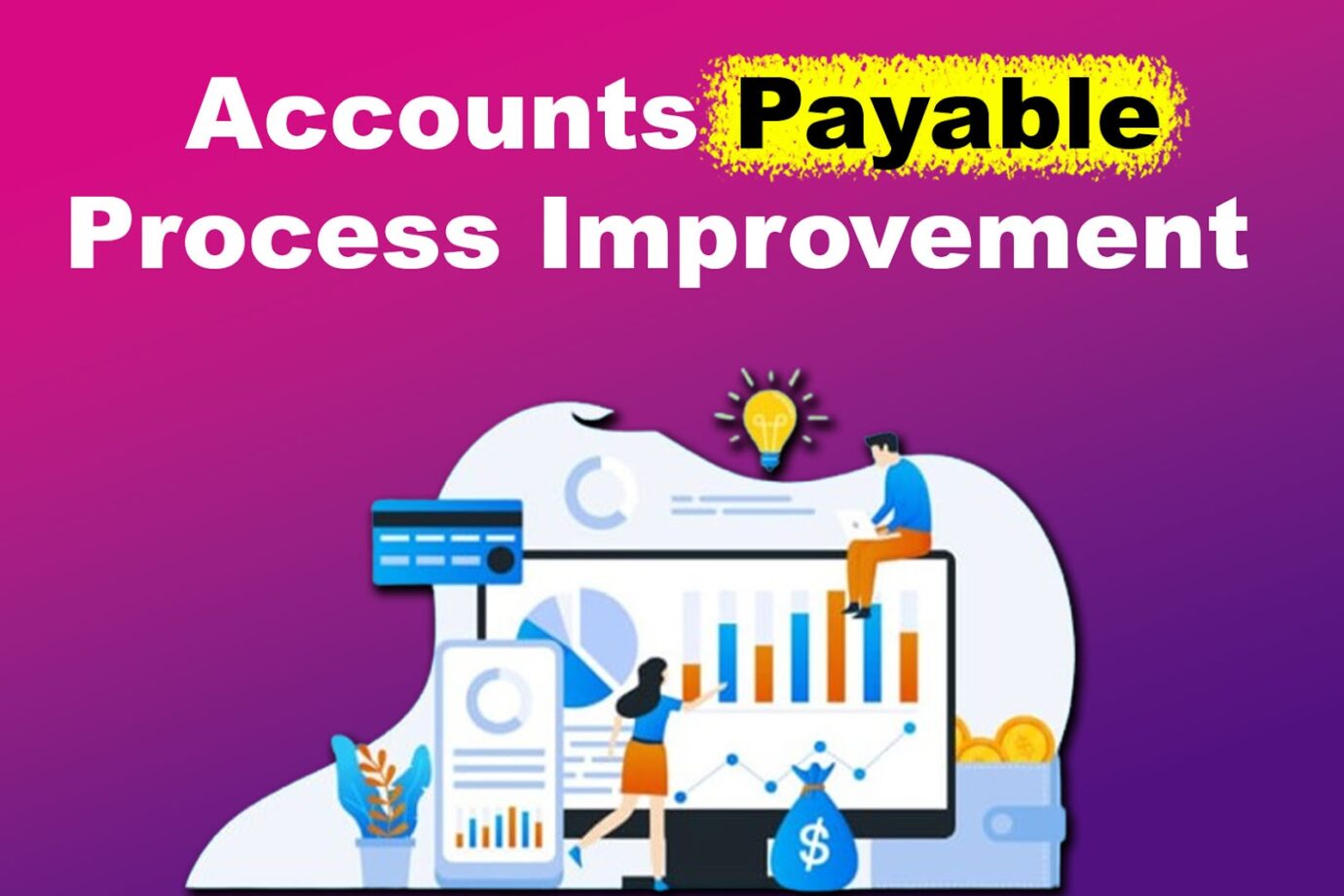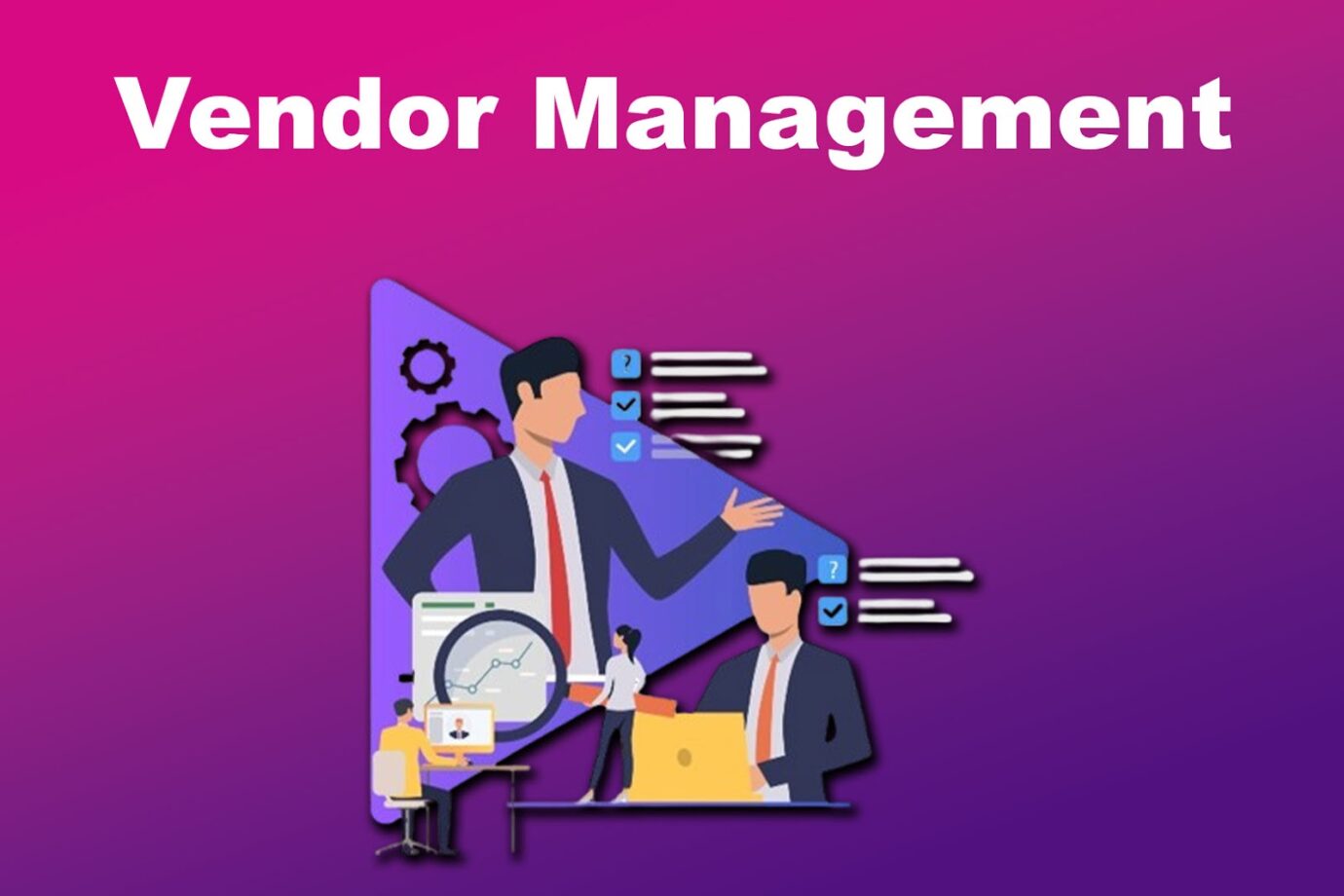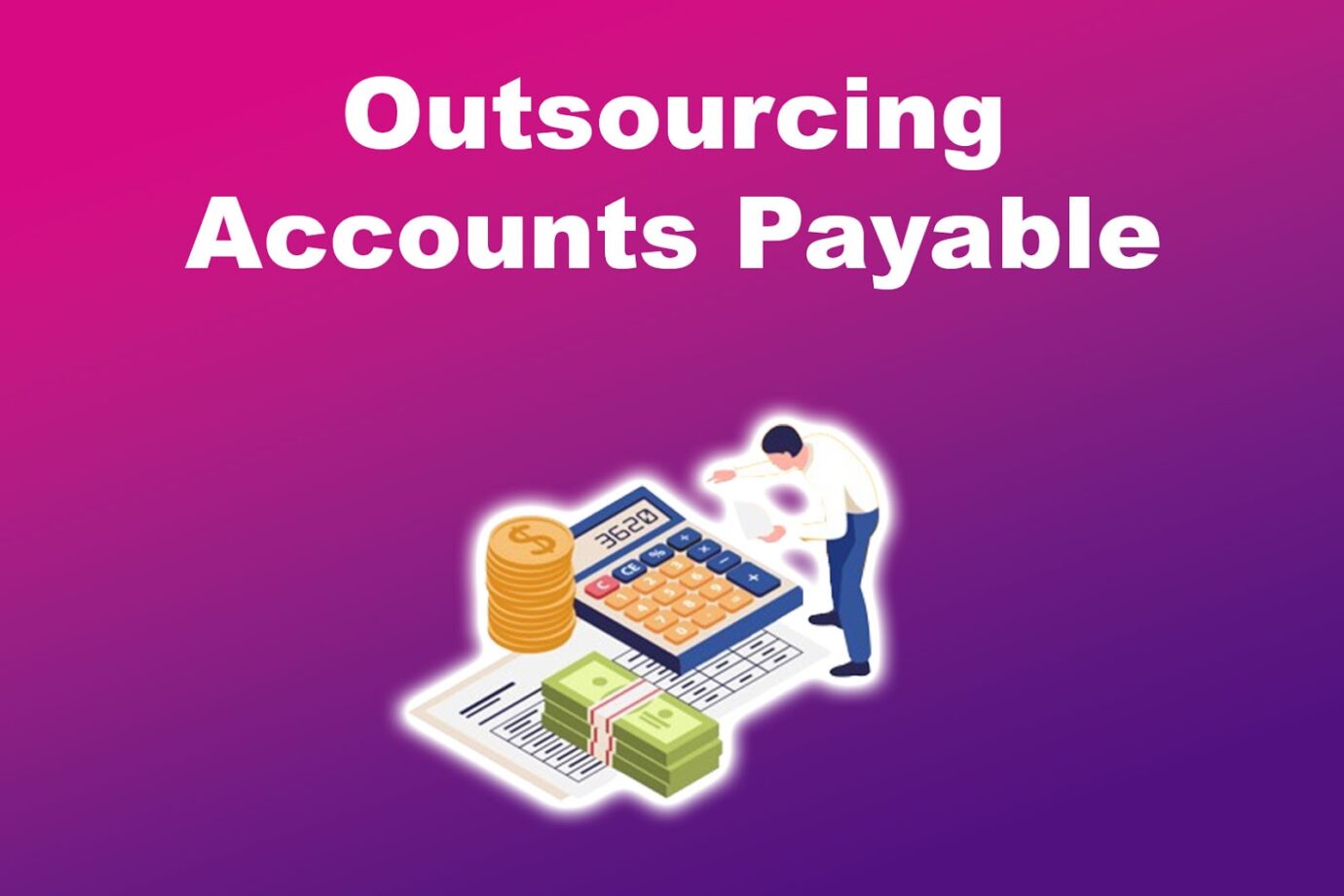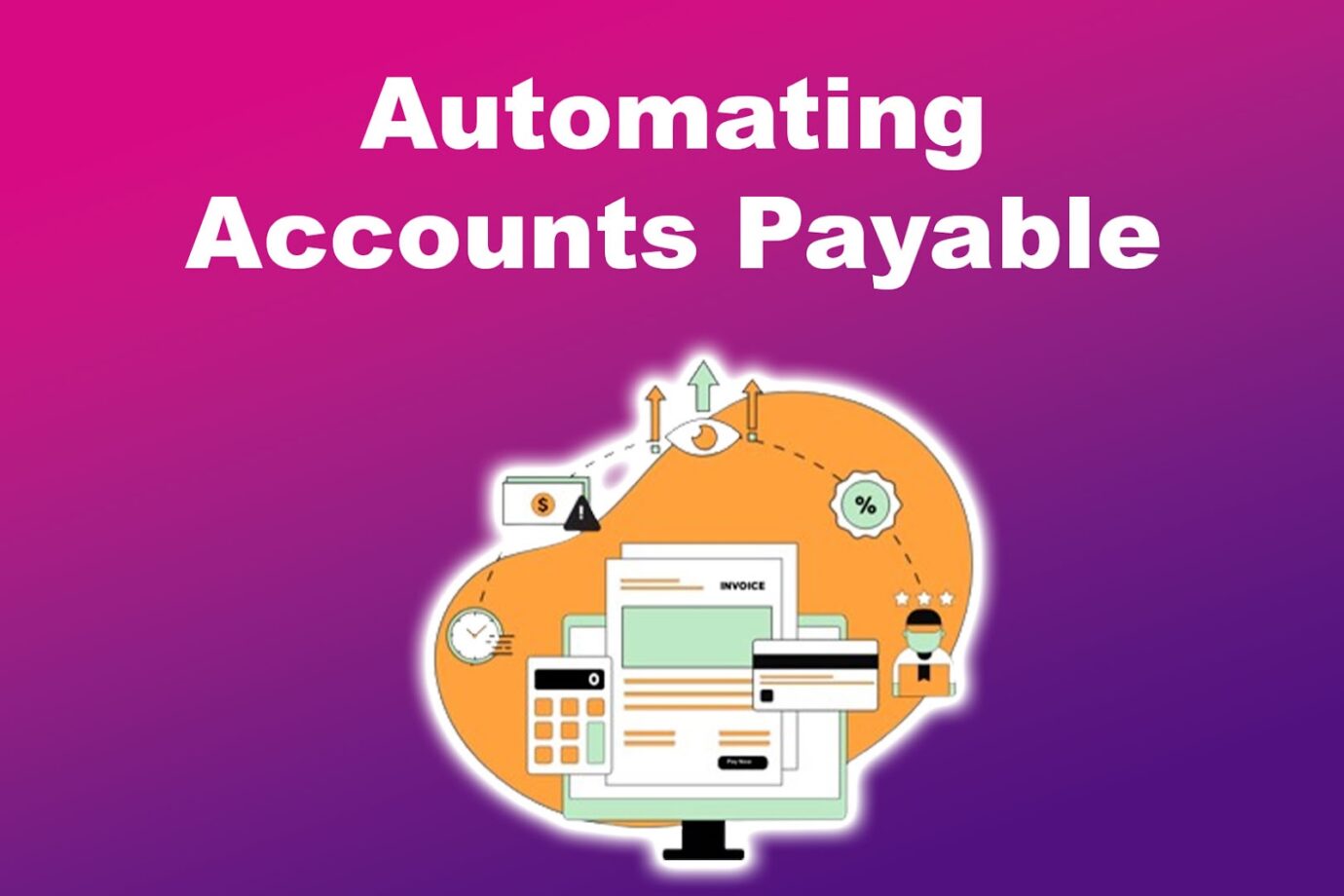Companies today often seek ways to boost productivity, lower costs, and streamline procedures in the dynamic business environment. One department with transformative potential is Accounts Payable (AP), a vital element that can significantly influence a company’s financial health if properly optimized.

This article will provide the best strategies for improving AP processes using BPO and automation. It will also give you insights into these measures’ benefits and potential downsides.
Accounts Payable Process Improvement Ideas
Whether you opt for automation or outsourcing, improving the accounts payable process can benefit the company or business.
Here are some actionable process improvement ideas for accounts payable:
1. Automation and Digitalization
Here are some effective ways you can use automation and digitalization to improve the AP process:
- Use Automation Tools.
Rely on software for invoice capture, routing, and approval. Schedule and process payments automatically to avoid delays and take advantage of early payment discount offers. - Enhance Data Accuracy.
Utilize invoices, purchase orders, and receiving reports simultaneously to prevent overpayments. - Migrate to Cloud-Based AP Solutions.
Use cloud solutions for better scalability, reachability, and synchronization with other financial systems. Choose a cloud solution with top-notch security to avoid data breaches.
Read this article from Forbes on how to overcome integration challenges in accounts payable software.
2. Vendor Management

Vendor management is vital to AP processes as it greatly influences cash flow, expense regulation, and supplier ties.
Here are some effective ways to improve vendor management for the AP process:
- Use Electronic Invoicing.
Persuade vendors to send electronic invoices to reduce manual entry mistakes and speed up processing time. Implement e-invoicing platforms that can synchronize with your ERP system. - Simplify Vendor Onboarding Process.
Automate the vendor onboarding process to reduce delays. Maintain an updated vendor database to guarantee efficient processing activities. - Optimize Early Payment Discounts.
Spot opportunities to use early payment discounts given by vendors. You can schedule payments automatically to maximize cash flow and capture maximum discount offers.
Related Post: Outsourcing Administrative Work
3. Streamline Workflow
Here are some effective ways that streamlining workflow can improve the AP process:
- Keep Track of Performance.
Setting and monitoring Key Performance Indicators (KPIs) helps determine your AP process’s success rate against specified targets and allows you to identify areas for improvement. - Streamline the Processes.
Create consistent processes for approving invoices, handling exceptions, and making payments. Write these methods and ensure all team members know and follow them. - Refine Approval Workflows.
Using preset rules, apply workflow management software to direct invoices to the right people. Configure steps to tackle exceptions and delays quickly.
4. Safety, Training, and Communication
Here are ideas on how safety, training, and communication can improve an AP process:
- Strengthen Fraud Control Measures.
Use technology to identify and stop fraud attempts like repeat invoices and payment irregularities. - Ongoing Training Opportunities.
Provide resources for ongoing training for AP team members so they can stay informed about the best practices and new technologies. - Better Communication Methods.
To ensure smooth operations, improve information exchange between the AP and other teams. Adopt interactive tools that encourage teamwork and data exchange.
Want to know more about accounts payable? Read this article from Forbes.
Outsourcing vs. Automating Accounts Payable Process
Choosing between outsourcing accounts payable (AP) and automating the AP process depends on your company’s needs and resources. When considering whether to outsource or automate the AP process, it’s important to weigh the advantages and disadvantages of each approach.
Here’s a detailed comparison of outsourcing and automating the accounts payable process:
Outsourcing Accounts Payable

Accounts Payable in BPO involves delegating the AP tasks to an external service provider that can offer several benefits.
Outsourcing can help you leverage the provider’s technology and processes, ensuring accuracy in all AP processes. It also helps reduce the burden on internal resources, allowing employees to work on more strategic tasks. However, outsourcing can also introduce risks that shouldn’t be overlooked.
Here are the pros and cons of outsourcing accounts payable:
Pros
- Cost Reduction.
Outsourcing can help lower labor costs by working with BPO providers in regions where labor costs are cheaper. - Expertise Access.
Accounts payable experts in BPO can offer valuable skills and best practices to improve your AP process. - Scalability.
Outsourcing makes it easy to adjust operations according to business needs. - Focus on Core Tasks.
Outsourcing AP tasks allows internal resources to concentrate on essential business activities. - Risk Management.
BPO providers help mitigate potential issues by taking on compliance and regulatory risks.
Cons
- Control & Quality Loss.
Outsourcing can reduce control and visibility in the AP process’s daily operations. This can reduce work quality, as outsourced personnel may have different methods. - Dependency.
Relying on a third party can cause dependency problems and difficulties if the provider doesn’t meet their KPIs. - Security Threats.
Sharing sensitive financial information with an external party can heighten the risk of data breaches.
Automating Accounts Payable

In the AP process, using software solutions for activities such as invoice collection, approval processes, and payments is known as automation. This practice increases speed, precision, and financial efficiency by reducing manual work and human errors.
This also maintains control within the company, protecting critical financial information. However, like outsourcing, there are some drawbacks.
Here are the advantages and disadvantages of automating accounts payable:
Pros
- Efficiency and Speed.
Automation speeds up invoice processing and reduces manual labor. - Accuracy.
Automated systems minimize errors associated with manual data entry and processing, ensuring data integrity. - Cost Reduction.
Automating tasks can lower operational costs over time, resulting in cost savings for the business. - Better Control and Visibility.
Automated systems offer real-time visibility into AP processes, allowing for better control and management of financial data. - Scalability.
Automation solutions can easily adapt to business growth without additional labor, making it a flexible option.
Cons
- Initial Investment.
The implementation of automation requires a substantial initial investment in software and technology. - Complex Implementation.
Transitioning to automated systems can be challenging and time-consuming due to the complexity involved. - Training Requirements.
Employees must undergo training on the new systems, which may require additional time and resources. - System Dependence.
Relying on technology means that system failures or downtime can disrupt AP processes.
Streamlining Success With AP Process Improvement
Implementing automation and outsourcing are key strategies for improving the AP process. Automation streamlines manual tasks, and outsourcing provides cost savings and expertise.
It is important to weigh the pros and cons of each approach carefully. While humans are still important, combining technology and human intelligence is even better.